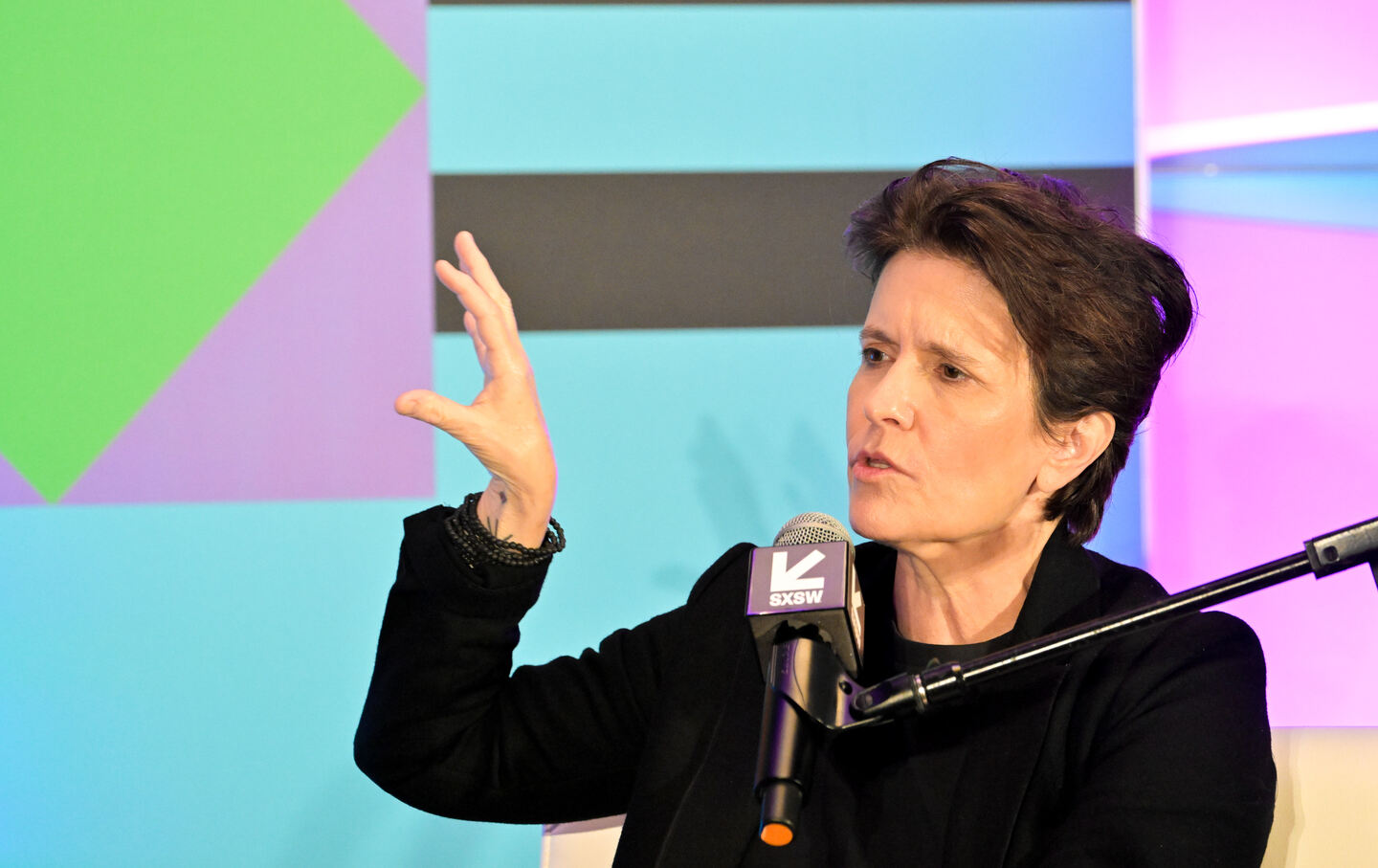Hollywood’s Blockbuster Crisis
On this episode of The Time of Monsters, Daniel Bessner discusses what corporate monopolies are doing to the dream factory.

Here's where to find podcasts from The Nation. Political talk without the boring parts, featuring the writers, activists and artists who shape the news, from a progressive perspective.
On this episode of The Time of Monsters, Jeet Heer and Daniel Bessner discuss what corporate monopolies are doing to the dream factory.
Advertising Inquiries: https://redcircle.com/brands
Privacy & Opt-Out: https://redcircle.com/privacy

People at a movie theater.
(Sean Gallup / Getty Images)The summer season has started with a fizzle for Hollywood, as expected hits like The Fall Guy, and Furioso have far underperformed their expectations. This isn’t a matter of a few films. Over the last few years, Hollywood is discovering that audiences are no longer reliably willing to buy tickets for the action adventure franchises that are the mainstay of the film industry. In particular, the once-dominant superhero genre is now fizzling. Adding to the troubles of Tinsel Town is the fact that streaming services, long touted as the future revenue model for the industry, are being squeezed by falling profits and rising interest rates.
Historian Daniel Bessner wrote a lengthy survey of Hollywood’s woes for the May issue of Harper’s Magazine. His account gives particular focus to political economy: the way government regulations and unions once made Hollywood a hospitable home for culture workers and how this has been undermined by the rise of private equity and monopolies. Daniel joins the podcast to talk about the movie industry and its discontents.

Here's where to find podcasts from The Nation. Political talk without the boring parts, featuring the writers, activists and artists who shape the news, from a progressive perspective.
Iran is facing upheavals at home and abroad. For more than two decades, the Islamic Republic has faced waves of protests from citizens demanding a more democratic society. Over the past two weeks, these protests have erupted with a new ferocity and are being met with violent repression. Meanwhile, the Israeli government is pushing the United States to renew bombing Iran, a military objective now being given the guise of a humanitarian mission. To discuss the turmoil in Iran and place it in the larger context of regional instability and competing visions of the future of the Middle East, I spoke with Annelle Sheline, a research fellow at The Quincy Institute who studies the region, in this special Friday edition of the podcast.
Advertising Inquiries: https://redcircle.com/brands
Privacy & Opt-Out: https://redcircle.com/privacy






